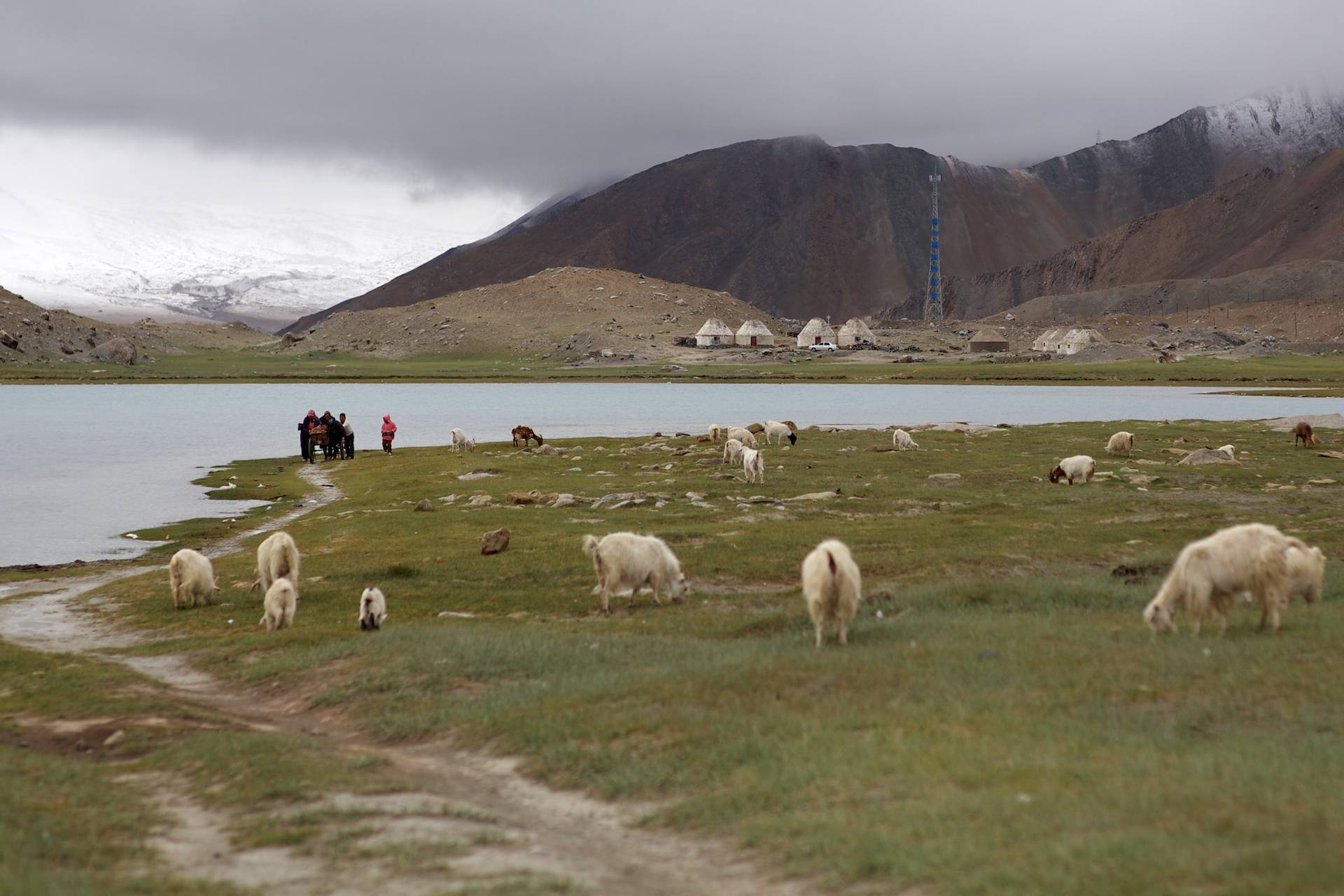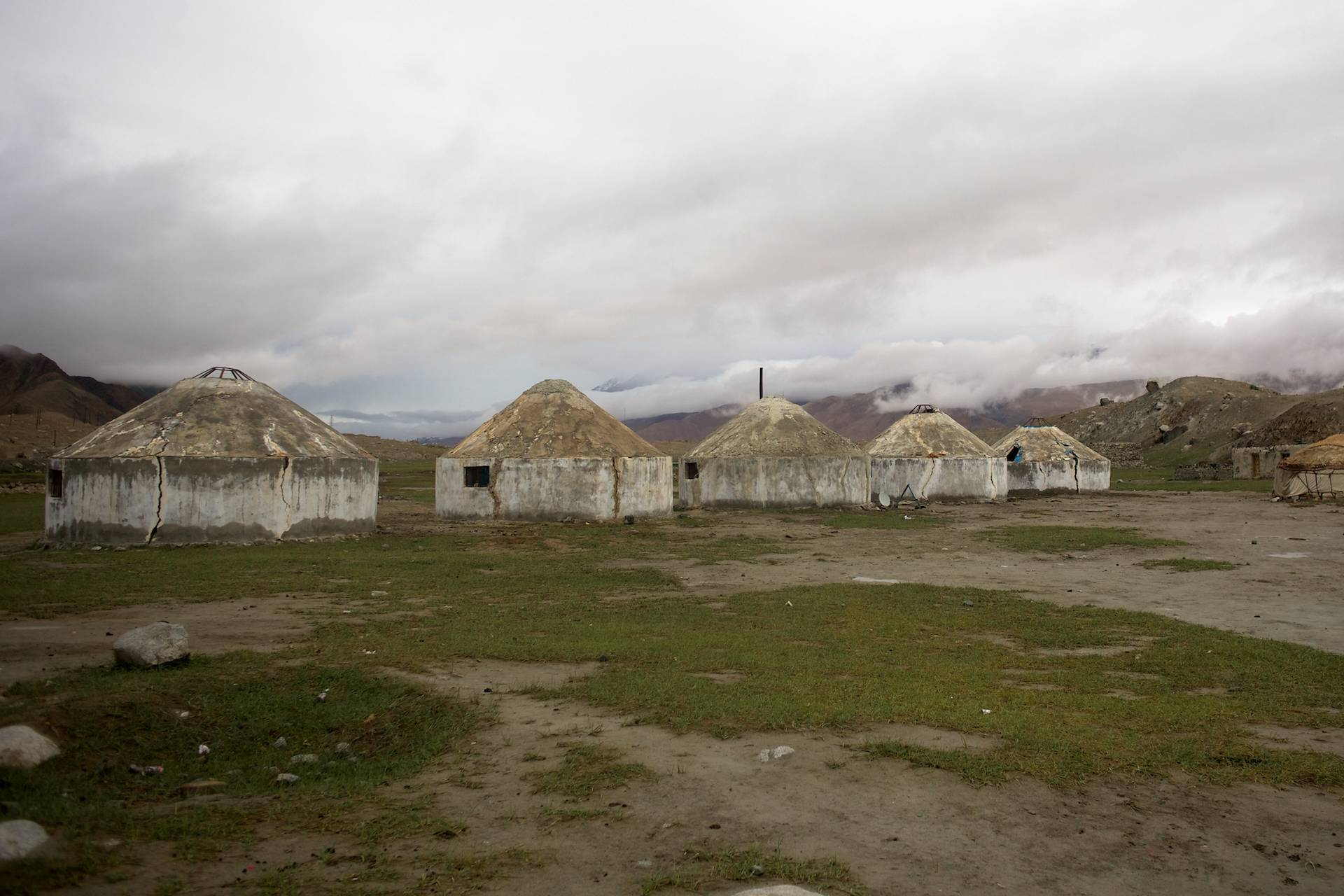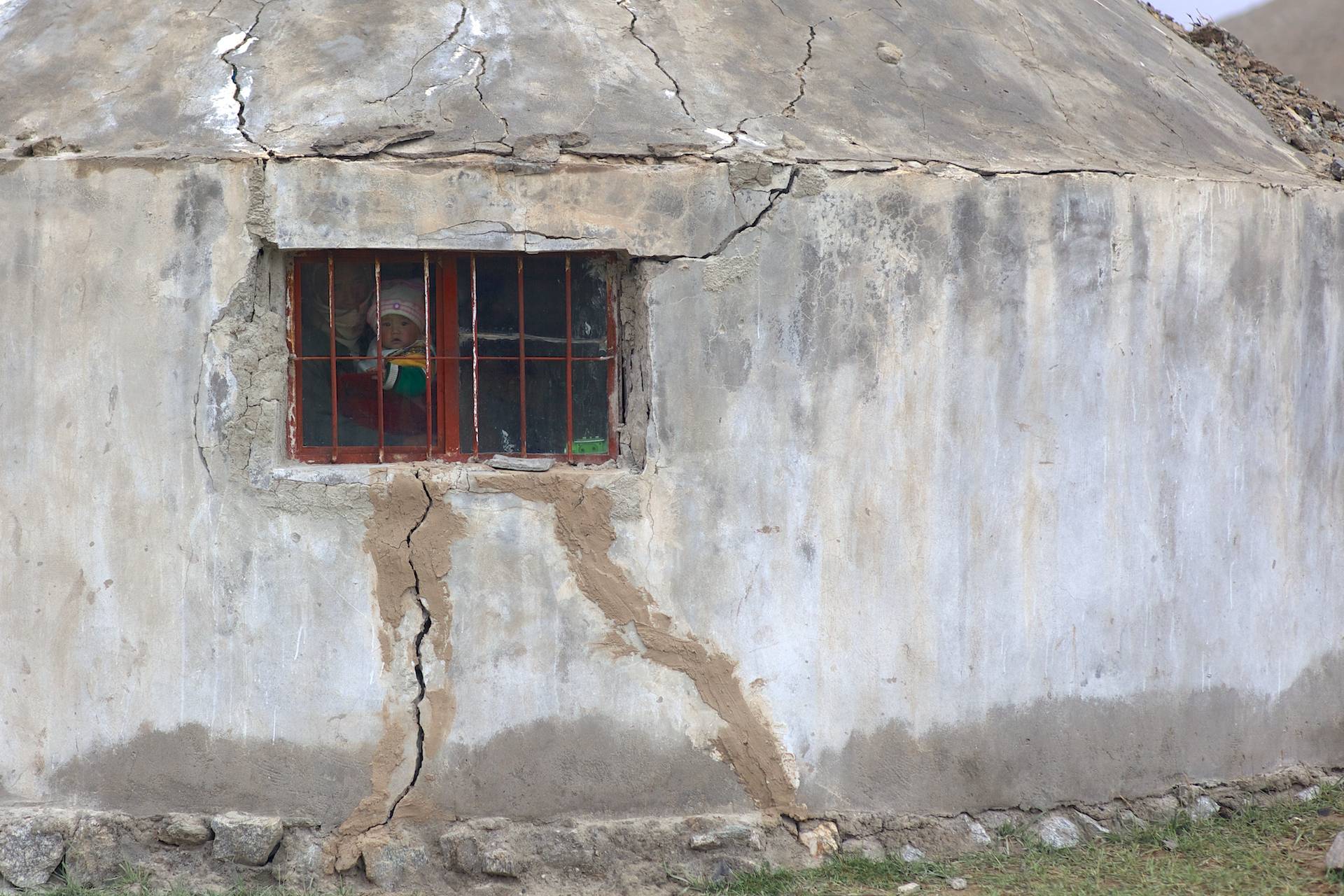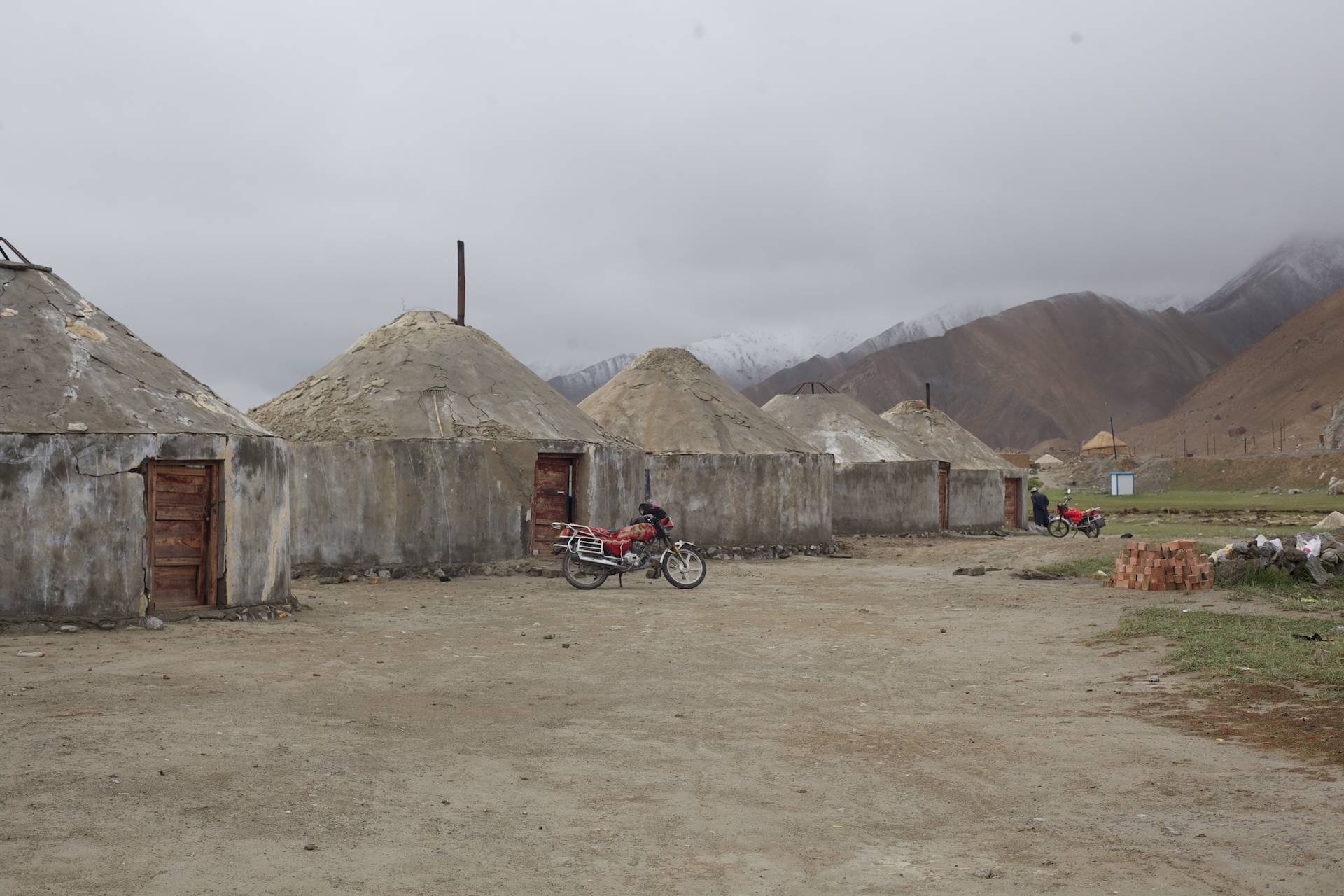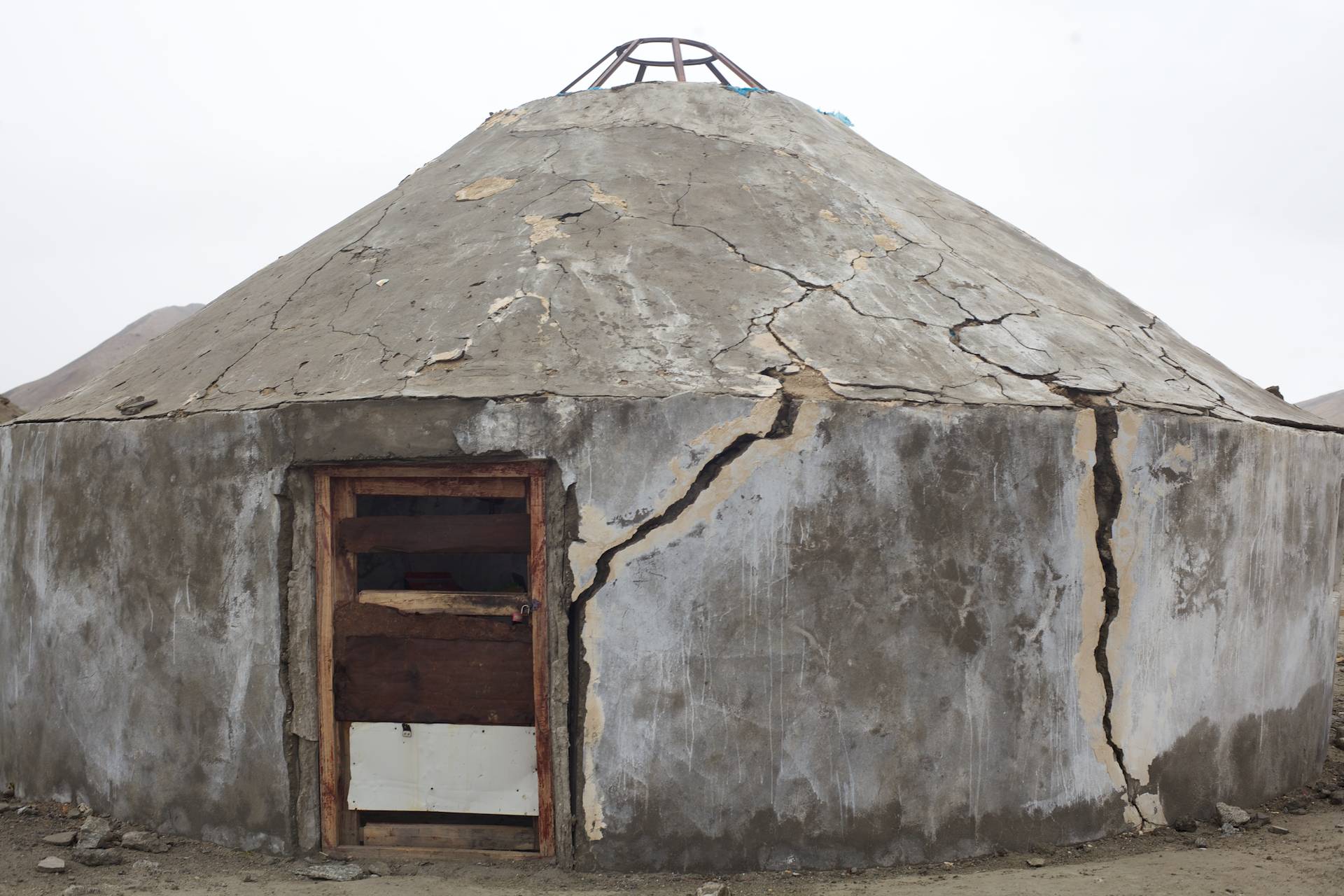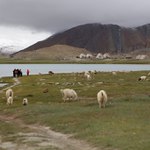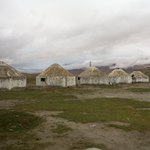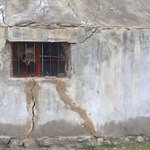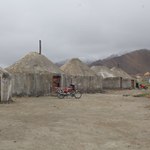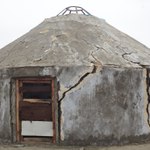Concrete Heritage
Mid August 2013, Lake Karakul, Xinjiang Province, China. Dark clouds, fresh snow and cold wind on the Karakoram Highway. The lake, which is otherwise as blue as the characters on the China Mobile tower in the background, is pale and silver. The horsemen, which usually advertise photo opportunities to the tourists passing by, drink tea and rest. Sheep graze and a group of people push a cart loaded with bricks back to their yurts.
The yurts, however, are not made of felt but of concrete. The material has miserably failed the test of time. Only a few of the yurts are inhabited; most seem deserted.
What is the history of these yurts? Are they an expression of the Chinese approach to cultural preservation – replacing old things with new ones in the same style but preferably made with concrete? Or are they simply the remains of an earlier push for modernity, foreshadowing the fate of the numerous houses currently under construction to create a new socialist countryside?
Let me know if you know anything about them.
Privacy Policy
Plain and simple: I take the principle of minimal data collection serious and try hard not to collect or process any personal data beyond the basics required to serve and maintain the website.
Specifically,
- We do not use cookies.
- We do not use third party analytics.
- There is no contact form that would allow you to enter personal data.
- We do not use advertising to run this website.
In order to serve this website, your IP address and information about your browser, operating system and screen resolution need to be collected and processed. theotherimage.com is a simple, handcrafted, static website hosted by Netlify. It uses fonts by Adobe Fonts (formerly Typekit). Both Netlify and Adobe automatically collect usage data, either generated by the use of this website or from the service infrastructure itself. This data is used for accounting and analytic purposes as well as for technical maintenance by these two companies. Neither Netlify nor Adobe use cookies to track you. Specifics can be found in their respective privacy policies.
The videos on this website are hosted by Vimeo. Depending on your browser configuration, Vimeo may use cookies and other tracking technologies as stated in their respective privacy policies.
If you have any questions about this privacy policy, please write to: Martin Saxer, LMU Munich, Department of Social and Cultural Anthropology, Oettingenstr. 67, 80538 Munich, Germany.
This privacy policy has been updated on 30 December 2018.
![[ the other image ]](/images/logo/toi-logo_2x.png)
